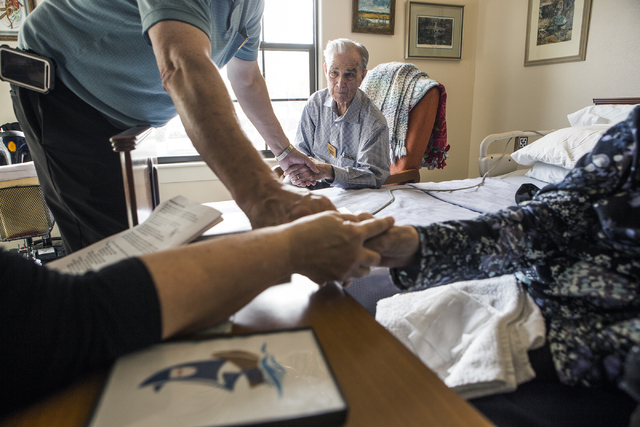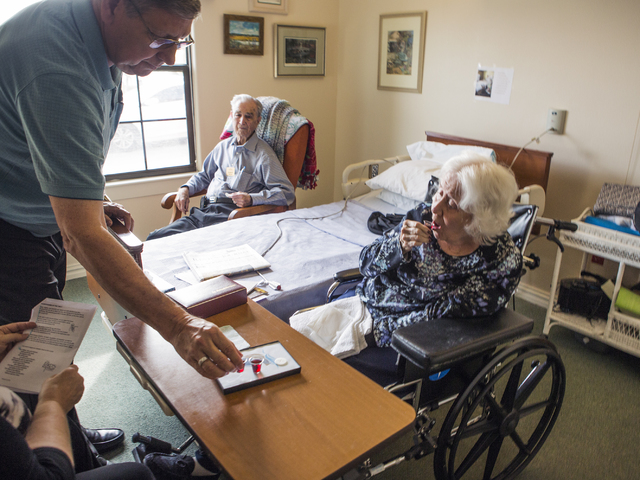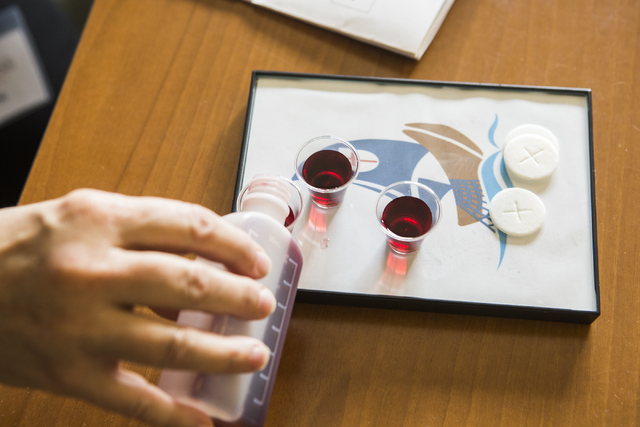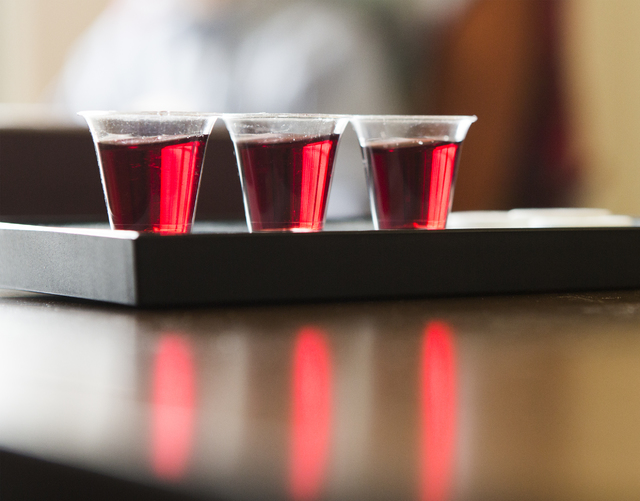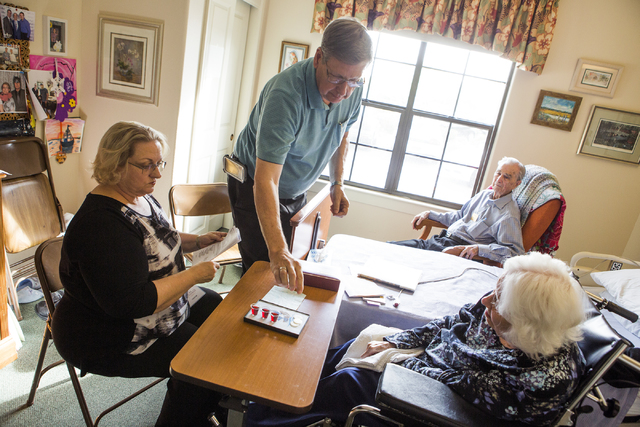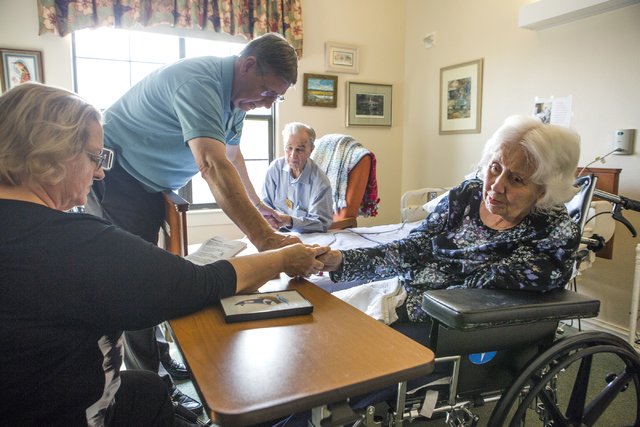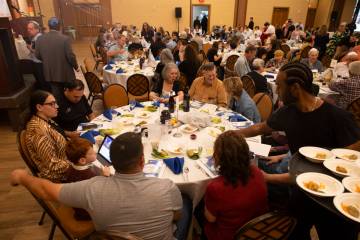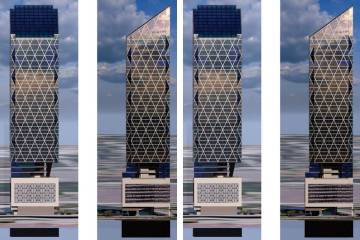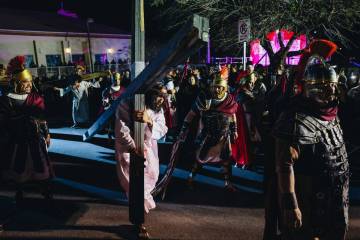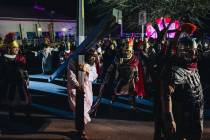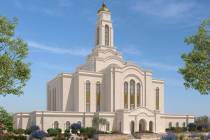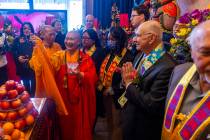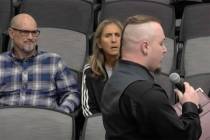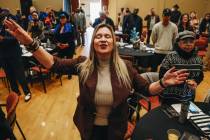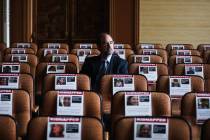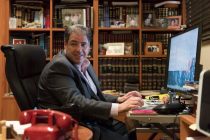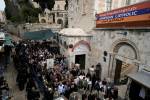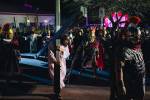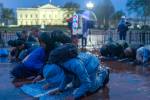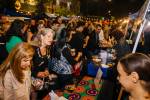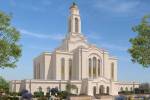Religious organizations take services where needed in Las Vegas Valley
On the first Tuesday of every month, the Rev. Ralph Williamson and two women who help prepare holy Communion for Sunday services gather a stack of church bulletins and Communion bread and drive across the valley to visit the church’s homebound.
Often, it’s an all-day journey. Their church, First African Methodist Episcopal, is in North Las Vegas but they may travel to Summerlin and as far south as the suburban sprawl off Blue Diamond Road, knocking on doors and traversing the hallways of hospitals and nursing homes.
They sit with the congregants, pray with them, listen. If there is a medical issue that needs attention, Williamson will make a note of it and try to find help, or a person might request some hot meals or assistance with housework. More often than not, it is enough just to be an ear to listen and a hand to hold.
“There’s multiple things that you do … besides just praying with them. You’re trying to make sure that they are well taken care of,” the pastor said.
Throughout the valley, religious communities minister to the sick and elderly, quietly keeping them connected to their faith or providing the kind of outreach that lets them know they are not forgotten.
A congregant who is homebound may be suffering from a terminal illness, recuperating from surgery or disabled. It could be someone in middle age suddenly living in a nursing home after a stroke, or an elderly person too frail to leave his or her home.
For the past several years, St. Andrew Lutheran Church near the retirement community of Sun City Summerlin has had a Telecare Ministry, a fellowship program with 26 volunteers who call nearly every church household once a month, or about 275 calls.
According to Gail Stacy, until recently the church’s head of congregational life, it is a way to reach out to members on a regular basis and, at the same time, find out if they need any support. So many, she said, are wary of asking for help.
“It always is amazing to me how many of our members are reluctant to call the church and say, ‘My husband is going into the hospital, could you pray for him?’ Or, you know, ‘My daughter is ill and having this issue, could you pray for her?’” she said.
In addition to the phone calls, volunteers with the church’s Barnabas Ministry visit the sick and homebound at least once a month to pray with them and offer Communion. Many times friendships are formed, and volunteers may assist with practical issues such as meals or rides to church, Stacy said.
The spiritual component of these visits is powerful, especially when people are going through one of the most difficult times of their lives. Stacy told the story of a couple who weren’t members of any church but reached out to St. Andrew to request home visits because the husband’s cancer had returned. St. Andrew volunteers visited until the man died about a month later.
“It’s one thing to have friends and neighbors visit, but it’s another thing to have that church visit. It’s intended to be a friend, but also a spiritual visit,” she said.
Ron and Linda Fraass visit four couples on a regular basis through the Barnabas Ministry. “It is a blessing to us to share this simple service with others,” Linda Fraass said. “Sometimes, they receive Communion for a short while and others receive Communion for years.”
For instance, they visit Farrow and Grace Smith at Las Ventanas retirement community once a month. Prior to that the Smiths attended St. Andrew. Two other couples the Fraasses visit request Communion every other week, Fraass noted.
About seven years ago, Grace in the Desert Episcopal Church organized a ministry made up of prayer partners who pray daily for church members and their loved ones who are ill or dying. The ministry is overseen by the Rev. Deacon Barbara Lewis, who is 85 and, at one time, served as a chaplain for Nathan Adelson Hospice.
There are at least 35 volunteers in the ministry. In addition to the daily devotions, they often visit congregants wherever they may be in hospitals, skilled nursing facilities, their homes. The church also has volunteers who provide meals, as well as eucharistic visitors who take holy Communion to those too sick or frail to attend services.
Lewis noted that Grace in the Desert provides pastoral-care training to those who conduct home visits on how to talk to congregants about their health issues and other concerns. “You don’t pry, but you do ask them to, ‘Tell me about it. How do you feel about it? What can we do for you,?’ those kinds of questions,” she said.
Being on the prayer list, she added, lets them know they are not forgotten. “For most people it’s the prayer that brings them through, that gives them the strength to go on,” she said.
One of the most unusual programs in the valley is L’Dor V’Dor, or “generation to generation,” at Temple Beth Sholom in northwest Las Vegas. While the temple reaches out to the sick and homebound among its membership, it also recognizes seniors around the valley no matter their religious affiliation.
Four times a year, the temple hosts a free luncheon for those who are homebound, or who reside in assisted living and skilled nursing centers. The synagogue sends invitations to about 70 facilities across the valley and, on the day of the luncheon, sends buses to pick up lunch guests, according to the program’s director Melanie Greenberg.
There are usually between 150 to 200 who sit down to the catered meal, which includes entertainment such as singing by the preschool children enrolled at the temple’s early childhood center. A recent luncheon included a choreographed sitting “dance” routine taught to the seniors by a UNLV dance instructor, Greenberg said.
“We feel that we filled a need in the community, that some of these people don’t get to socialize and get out of their living environment. That was the reason for it, and we knew that it’s not just something in the Jewish community, it affects everybody,” Greenberg said.
The benefits of spiritual outreach are reciprocal. Williamson has been visiting the homebound for years, but the one-on-one moments of pastoral care never cease to enrich his own “spiritual strength,” he said.
“There’s nothing like seeing someone in the hospital whom you are going prepared to try to inspire, and they sit and tell you about how God has been good to them, and then you listen to the stories that they tell you. … It encourages you so much, it keeps you going,” he said.



